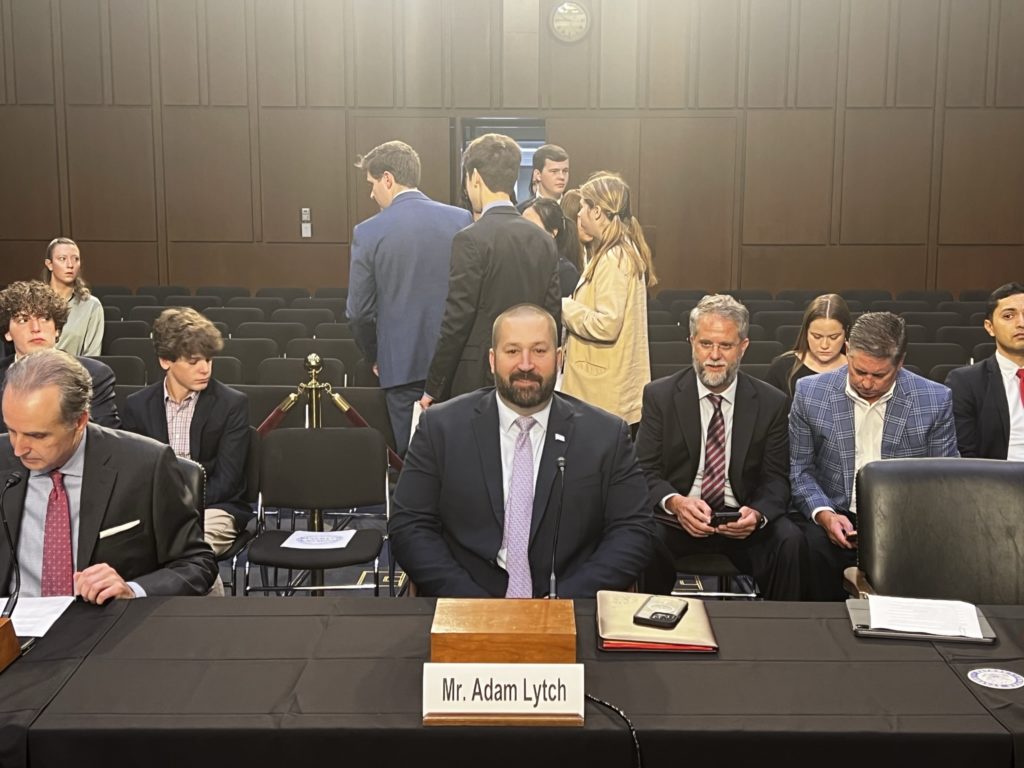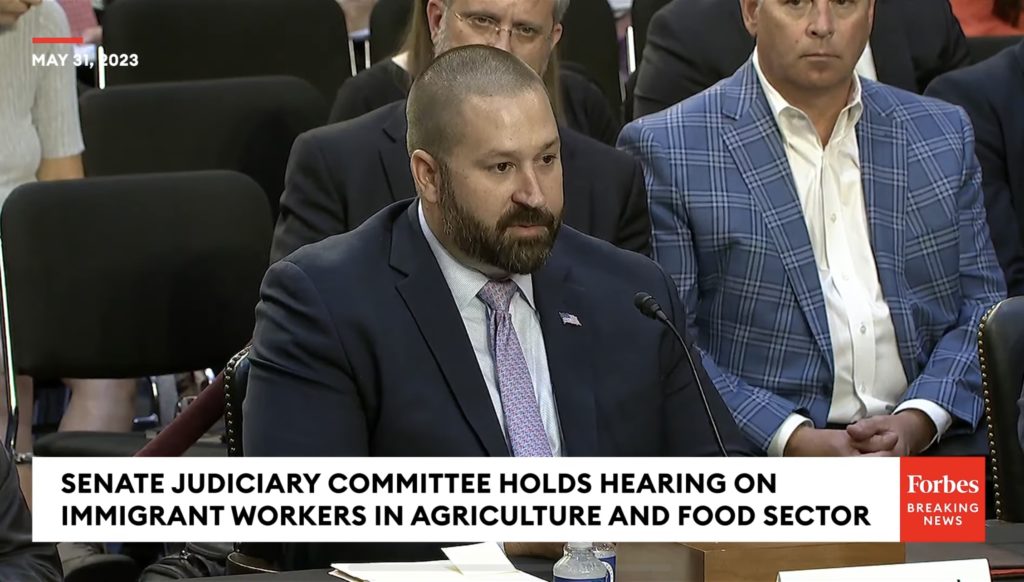By Frank Giles
There’s a farm labor crisis facing American agriculture. Adam Lytch was among the growers who took that message to Washington, D.C., on May 31 to testify before the Senate Judiciary Committee.

(Photo by John Hollay)
Lytch, regional manager at L&M Farms, called on lawmakers to consider comprehensive immigration reform that recognizes the needs of farmers who grow the domestic food supply.
Lytch, who is based in East Palatka, Florida, said L&M Farms, like many others, relies heavily on the H-2A visa program because, despite its challenges, is the only way to source reliable labor. But he testified recent changes made by the Department of Labor (DOL), the agency that runs the program, are not sustainable for seasonal crop growers.
FOOD PRICES WILL RISE
Lytch stressed the H-2A adverse effect wage rate (AEWR) no longer functions as intended since domestic laborers will not work on farms.
“In fact, American families are the ones adversely affected (by the AEWR), as agriculture’s workforce crisis will drive food prices even higher,” Lytch said.
For 2023, the AEWR increased by 15.5%, which was among the highest increases in the country. Lytch said he received notice of the increase just 38 days before the wage went into effect on Jan. 1. Between the wage increase and other costs, H-2A worker pay can add up to more than $23 per hour.
“We had workers on the way from Mexico when we found out we had nearly a $2 per hour increase coming. At the same time, our crops were mostly all planted, giving us no time to react,” Lytch testified.
A new DOL regulation imposed in late March will use different wage rates for different job functions rather than a singular AEWR. And these wages will be calculated based on the Occupational Employment and Wage Statistics survey.
“I understand that farmers and ranchers are not even surveyed for this data. It’s unclear how this then can even be applied to farm jobs when non‐farm jobs are surveyed,” Lytch said. “The labor department summarily rejected several practical suggestions that would have made the rule more workable by the industry.”

ACTION NEEDED
Lytch said it all adds up to an unsustainable situation for growers when labor accounts for 40% to 50% of their expenses or more.
“Imagine trying to set a budget for your company with no certainty as to what wages might be from one year to the next. This wage instability coupled with the low-margin business of farming is simply not sustainable,” he testified. “In Georgia and Florida alone, the totals are staggering, with many of my fellow farmers reporting similar payroll expense increases ranging from half a million to millions of dollars.”
Lytch and others testifying called on action from Congress to correct problems with the H-2A program and support larger reform. He said the attempt to pass the Farm Workforce Modernization Act was a start. The recently reintroduced Dignity Act would even better address the farm labor crisis.
To see the full hearing, click here.









